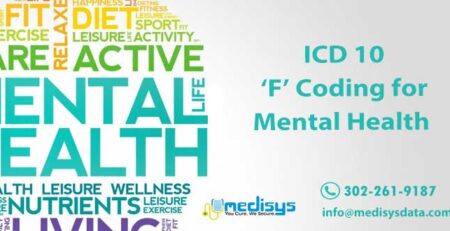Navigating the minor details of mental health billing and coding can be a challenging task for providers. Accurate and efficient billing practices are essential to ensure proper reimbursement and compliance. This guide provides an overview of key elements involved in mental health billing and coding, offering insights and tips to streamline your practice’s billing processes.
Understanding CPT Codes for Mental Health Services
Current Procedural Terminology (CPT) codes are essential for billing various mental health services. Commonly used CPT codes include:
- 90834: Psychotherapy, 45 minutes
- 90837: Psychotherapy, 60 minutes
- 90791: Psychiatric diagnostic evaluation
- 90853: Group psychotherapy
Using the correct CPT codes is crucial for accurate billing and ensuring appropriate reimbursement.
Accurate ICD-10 Diagnosis Coding
ICD-10 codes are used to classify and code diagnoses, symptoms, and procedures. Accurate coding is vital for the integrity of the billing process. Examples of commonly used ICD-10 codes in mental health include:
- F32.1: Major depressive disorder, single episode, moderate
- F41.1: Generalized anxiety disorder
- F43.10: Post-traumatic stress disorder, unspecified
Proper training in ICD-10 coding can help avoid claim rejections and delays.
Reimbursement Rates: What to Expect
Understanding the reimbursement rates from different insurance payers can help you manage your practice’s finances effectively. Reimbursement rates vary based on the type of service, location, and payer policies. Staying informed about these rates and negotiating with payers can optimize your revenue.
Staying Up-to-Date with Billing and Coding Regulations
Mental health billing regulations are complex and frequently updated. Staying informed about changes in billing rules, such as those related to telehealth services, is crucial. Regular training and subscribing to industry updates can help you stay compliant.
Documentation Requirements for Claims
Thorough and accurate documentation is essential for supporting your claims. Clinical notes should include:
- Patient’s history and symptoms
- Diagnosis
- Treatment plan and progress
- Duration and details of therapy sessions
Proper documentation minimizes the risk of claim denials and audits.
Exploring Billing Software and Systems
Using advanced billing software can streamline your billing process. Look for systems that offer features like automated claim submissions, real-time tracking, and integration with electronic health records (EHR). Efficient billing software can save time and reduce errors.
Avoiding Common Billing Errors
Common billing errors, such as incorrect coding, missing information, and duplicate claims, can lead to denials and delays. Implementing thorough review processes and regular training can help prevent these errors.
Ensuring Compliance with HIPAA and Privacy Regulations
Protecting patient information is paramount. Ensure your practice complies with the Health Insurance Portability and Accountability Act (HIPAA) and other privacy regulations. Regular training and robust security measures are essential to maintain compliance.
Considering Outsourcing Billing Services
Outsourcing your billing tasks to a specialized billing service can be a viable option. It allows you to focus on patient care while experts handle billing, coding, and compliance. Evaluate potential partners carefully to ensure they meet your practice’s needs.
Understanding Payer-Specific Requirements
Different insurance companies have varying requirements for claims submission. Familiarize yourself with payer-specific guidelines and maintain open communication with payers to ensure smooth and timely reimbursements.
To conclude,
Mastering mental health billing and coding requires a comprehensive understanding of various elements, from CPT and ICD-10 codes to reimbursement rates and compliance regulations. By staying informed and utilizing advanced tools and services, mental health providers can optimize billing processes and ensure accurate and timely reimbursements. For more detailed information or assistance with your billing needs, contact Medisys, your trusted partner in mental health billing solutions.
Reference Links:
CPT® Copyright 2024 American Medical Association. All rights reserved.












